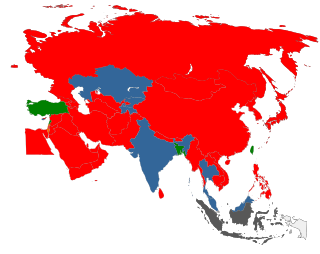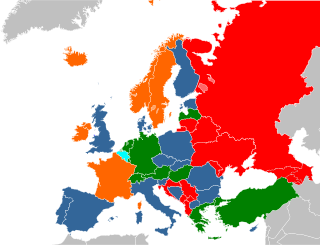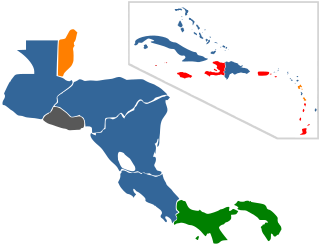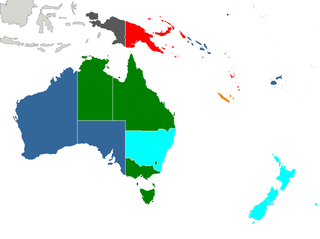Related Research Articles

The legality of prostitution in Asia varies by country. There is often a significant difference in Asia between prostitution laws and the practice of prostitution. In 2011, the Asian Commission on AIDS estimated there were 10 million sex workers in Asia and 75 million male customers.

Procuring, pimping, or pandering is the facilitation or provision of a prostitute or other sex worker in the arrangement of a sex act with a customer. A procurer, colloquially called a pimp or a madam or a brothel keeper, is an agent for prostitutes who collects part of their earnings. The procurer may receive this money in return for advertising services, physical protection, or for providing and possibly monopolizing a location where the prostitute may solicit clients. Like prostitution, the legality of certain actions of a madam or a pimp vary from one region to the next.

Prostitution in Spain is not addressed by any specific law, but a number of activities related to it, such as pimping, are illegal. In 2016, UNAIDS estimated there to be 70,268 prostitutes in the country, although other estimates put the number higher. Most prostitutes in the country are immigrants. The sex industry in Spain is estimated to be worth €3.7 billion.
Prostitution in Luxembourg is in itself legal, and is common, but activities associated with organised prostitution, such as profiting from or aiding prostitution, are illegal. Human trafficking incurs severe penalties. There are estimated to be 300 prostitutes in Luxembourg, most of whom are immigrants.
Prostitution is illegal in Egypt. The Egyptian National Police officially combats prostitution but, like almost all other countries, prostitution exists in Egypt. UNAIDS estimate there to be 23,000 prostitutes in the country, including Egyptians, West African and Eastern Europeans.
Prostitution in Oman is illegal, but women from Eastern Europe, South Asia, North Africa, and China engage in prostitution in the country. Prostitution occurs in bars, hotels, nightclubs, brothels, massage parlors and health clubs.
Prostitution in Trinidad and Tobago is legal but related activities such as brothel keeping, soliciting and pimping are illegal.
Prostitution in Lebanon is nominally legal and regulated. However, no licences have been issued since 1975. In modern Lebanon, prostitution takes place semi-officially via 'super night clubs', and illegally on the streets, in bars, hotels and brothels. UNAIDS estimate there to be 4,220 prostitutes in the country.

The legality of prostitution in Europe varies by country.
Prostitution in Kuwait is illegal, but common. Most of the prostitutes are foreign nationals.
Prostitution in Croatia is illegal but common. Forcible prostitution, any kind of brothels, or procuring are treated as a felony, while voluntary prostitution is considered to be infraction against public order. Like in many other Southeast European countries, the problem of human trafficking for the purposes of sex is big in Croatia.

Prostitution laws varies widely from country to country, and between jurisdictions within a country. At one extreme, prostitution or sex work is legal in some places and regarded as a profession, while at the other extreme, it is considered a severe crime punishable by death in some other places. A variety of different legal models exist around the world, including total bans, bans that only target the customer, and laws permitting prostitution but prohibiting organized groups, an example being brothels.
Prostitution in Namibia is legal and a highly prevalent common practice. Related activities such as solicitation, procuring and being involved in the running of a brothel are illegal. A World Bank study estimated there were about 11,000 prostitutes in Namibia.
Prostitution in Kyrgyzstan has been legal since 1998, but the operation of brothels, pimping, and recruiting persons into prostitution are illegal, with penalties of up to five years There are estimated to be 7,100 sex workers in the country. Prostitution occurs on the streets, in bars, hotels and brothels.
Prostitution in Turkmenistan is illegal but common. Prostitution has increased within the country since the collapse of the Soviet Union. Poverty is one of the reasons women have turned to prostitution, sometimes under pressure from family members.
Prostitution in Algeria is illegal under Article 343 of the Algerian Penal Code. This article also prohibits the use of prostitution services, pimping, living with a prostitute, soliciting, and forcing others into prostitution.

Legality of prostitution in the Americas varies by country. Most countries only legalized prostitution, with the act of exchanging money for sexual services legal. The level of enforcement varies by country. One country, the United States, is unique as legality of prostitution is not the responsibility of the federal government, but rather state, territorial, and federal district's responsibility.

Prostitution in Oceania varies greatly across the region. In American Samoa, for instance, prostitution is illegal, whereas in New Zealand most aspects of the trade are decriminalised.

Sex trafficking in the United States is a form of human trafficking which involves reproductive slavery or commercial sexual exploitation as it occurs in the United States. Sex trafficking includes the transportation of persons by means of coercion, deception and/or force into exploitative and slavery-like conditions. It is commonly associated with organized crime.
Prostitution in Guam is illegal but is practised covertly, especially in massage parlours. Although massage parlours are sometimes raided, generally the authorities turn a blind eye.
References
- ↑ Godwin, John (October 2012). "Sex Work and the Law in Asia and the Pacific" (PDF). UNAIDS .
- ↑ Baker & Dalla, R & L (2011). Global Perspectives on Prostitution and Sex Trafficking: Africa, Asia, Middle East, and Oceania. p. 288.
- ↑ "Two women in American Samoa sentenced over prosititution[sic]". Fiji One. January 11, 2015. Archived from the original on June 25, 2015. Retrieved February 3, 2018.
- 1 2 "Two Chinese Nationals Sentenced for Sex Trafficking Charges in American Samoa". Department of Justice. January 4, 2008. Retrieved February 3, 2018.
- ↑ "Prostitution Being Tackled In American Samoa". Pacific Islands Report. February 24, 2000. Retrieved February 3, 2018.
- ↑ Page 244 Samuel J. Rogal, A William Somerset Maugham Encyclopedia. Greenwood Publishing Group, 1997.
- ↑ "Code Annotated Chapter 37 - Prostitution". American Samoa Bar Association. Retrieved February 3, 2018.
- ↑ "Proposed human trafficking law in American Samoa draws reactions". Radio New Zealand . September 10, 2013. Retrieved February 3, 2018.
- ↑ "American Samoa prostitution ringleaders jailed". Radio Australia. December 19, 2011. Retrieved February 3, 2018.
- ↑ "Authorities raid American Samoa immigration office". San Diego Union Tribune. January 8, 2010. Retrieved February 3, 2018.
- ↑ "Trafficking in Persons Report (10th Ed. )" (PDF). United States Department of State . June 2010. Retrieved February 3, 2018.
- ↑ "New American Samoa law fights human trafficking". NewsOK. April 2, 2014. Retrieved February 3, 2018.